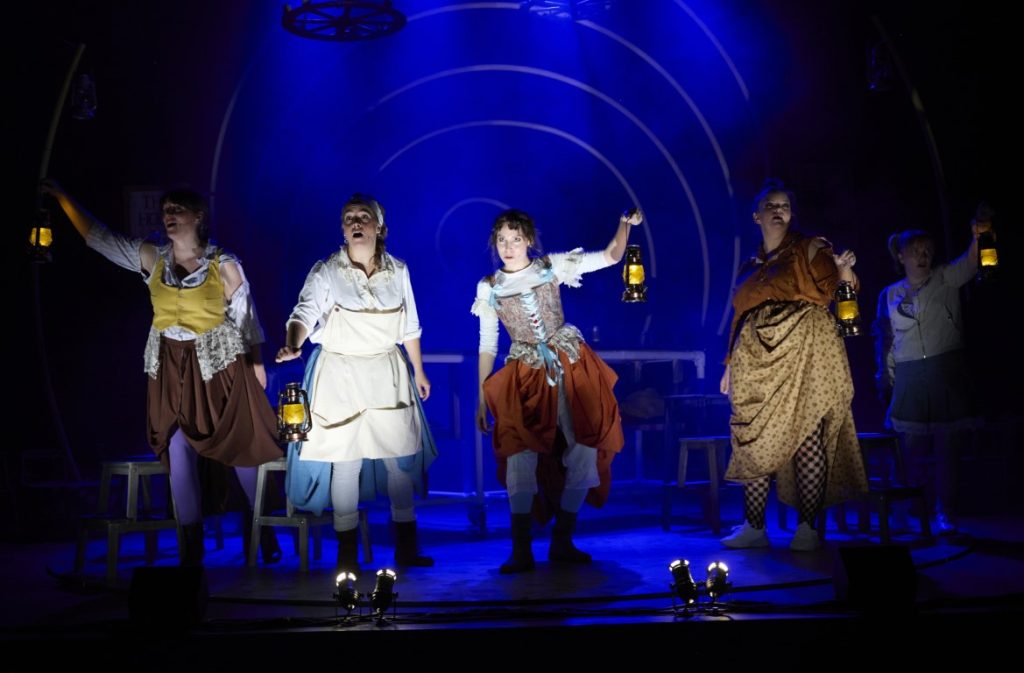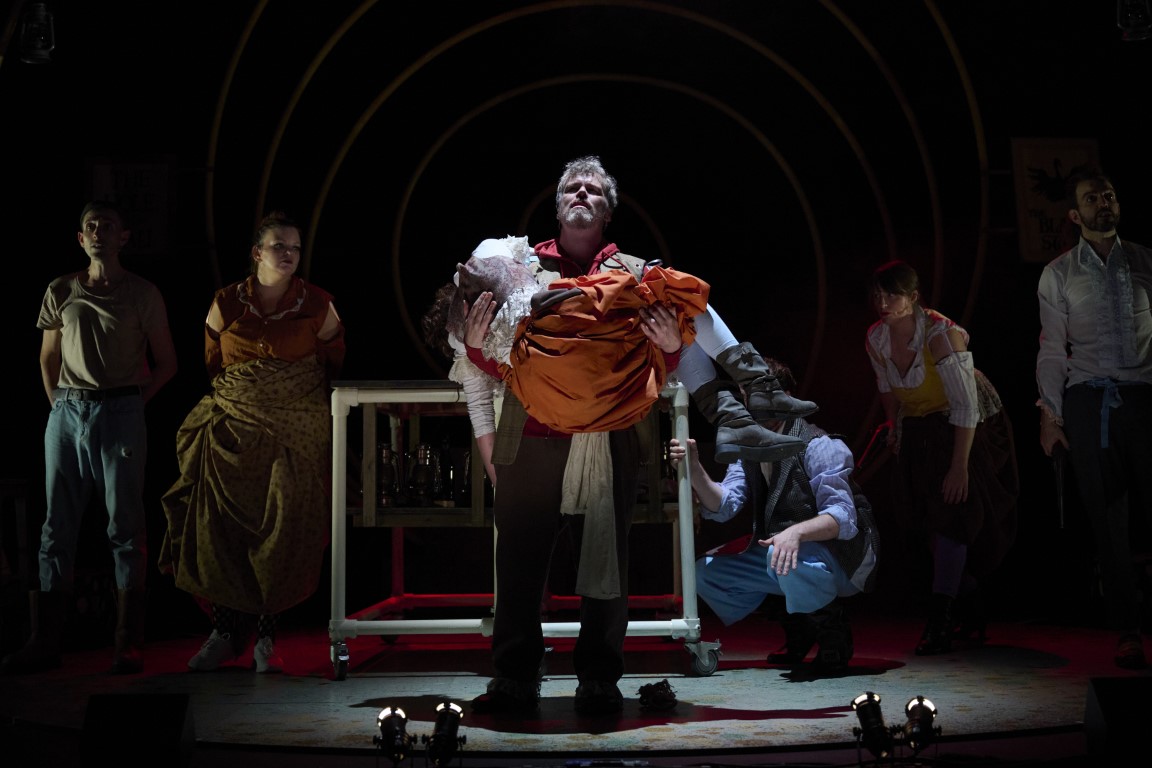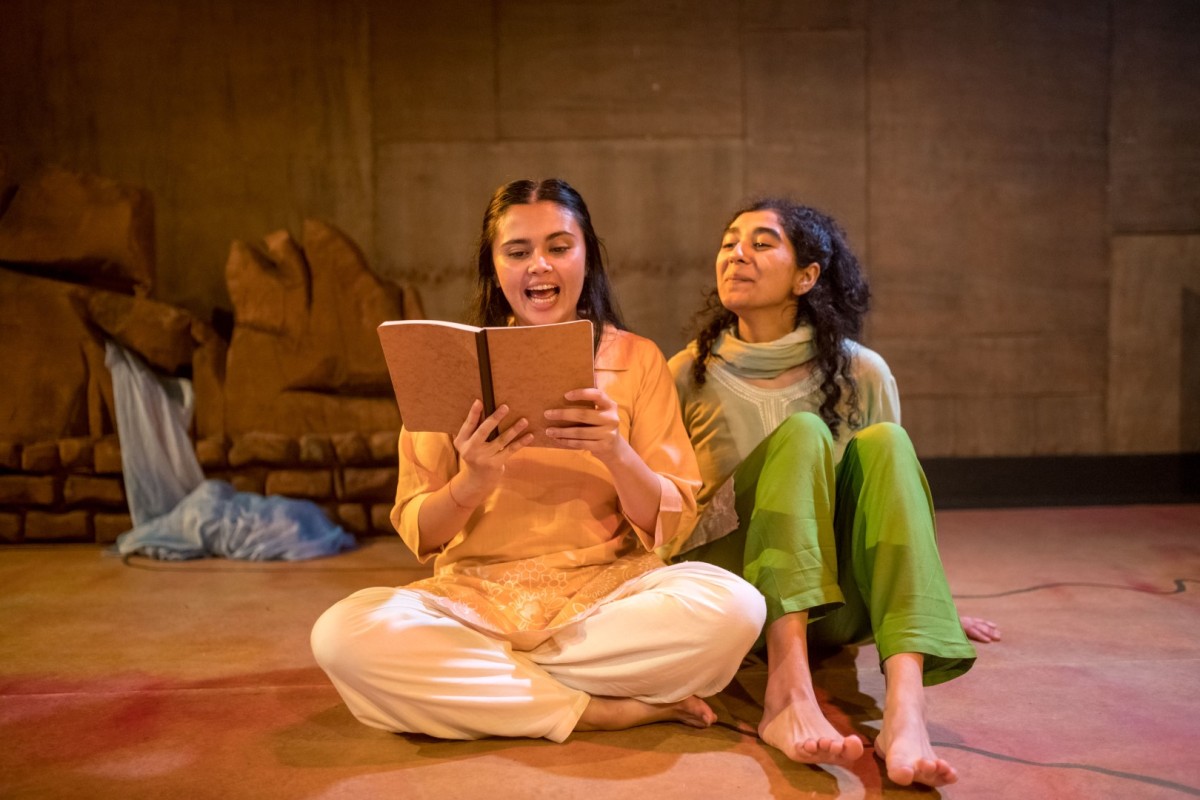One of the nation’s favourite poems has become the inspiration for a new musical, premiering at Norwich Theatre Playhouse.
Alfred Noyes’ much-loved ballad is transformed for the stage with many a detour, with the doomed love story of the Highwayman and Bess muddled with the legend of 17th century gentleman robber Claude Duval, expanded to take in a daughter and several other new characters, and partially relocated into Suffolk. Even Black Shuck creeps in for a mention.
The show, produced by Ovo Theatre and Norwich Theatre, is currently previewing at the Playhouse ahead of a limited tour of East Anglia.
Kitty Morgan’s book, music, and lyrics have a lot going on – perhaps too much. The story travels down a few too many byways and could do with being trimmed from its two hour plus stage time.
It also need some leavening – Noyes’ poem is famously tragic, but we get many additional levels of trauma and the score seldom seems to escape the minor key.

Guideo Garcia Lueches channels Russell Brand as a jester-like Thomas French (an odd choice of characterisation, given recent accusations), but even he ends up with a painful unrequited love. Nell Gwynn (Emily Law) and King Charles II (James Dangerfield) are drafted in as comic foils, only to end up singing a musical hall tune with the lyrics “the rich get richer, the poor despair”.
The core story of Duval (Kevin Wathen, more sullen than brooding) and Bess (Josselyn Ryder, broad in range vocally and emotionally) is, however, well told, and Natasha Spencer-Levy is likeable as spunky teenager Peggy. Faith Turner plays it perfectly straight as simpleton barmaid Jem, with deadpan delivery of a splattering of successfully corny lines, and Melissa O’Donnell gives some of the best vocals of the night as spurned lover Rose.
Adrian Rees design is simple but fluid, making flexible use of tables and stools, with the costumes a motley hybrid of modern day and period dress that ends up working surprisingly well.
The music is less orchestrated than in many shows, not surprisingly for a preview, but Adam Morris’ live piano – accompanied by several of the cast across violin, guitar, and accordion – is perfectly performed.
There is promise here, and the show’s main problem is too many ideas. It needs simplifying, shortening, and a couple of seriously high-spirited songs that resist the urge to turn tragic. The contrast would make the genuinely poignant parts all the more powerful.
- The Highwayman continues at Norwich Theatre Playhouse until Sunday 18 August 2024, then touring to The Roman Theatre, St Albans; New Wolsey Theatre, Ipswich; and Theatre Royal, Bury St Edmunds.


